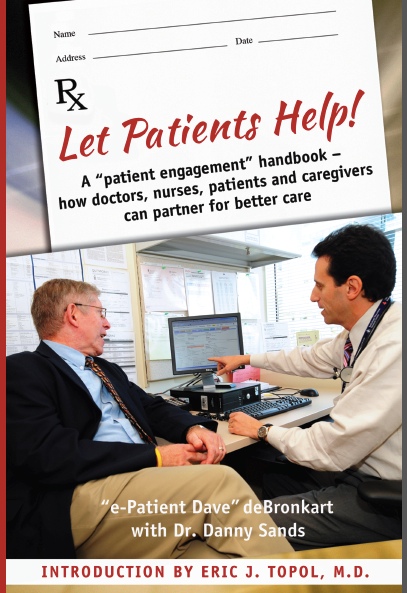Wrap your head around that idea. It’s one of the many insights I learned from reading Let Patients Help — and I’m freaking quoted in that chapter! But that’s E-patient Dave, seeing things that nobody else sees and, in this case, making up words like “boogloo” (Bing + Google + Yahoo). As he writes: 81% […]
Blog
Public Q&A: How do (older, lower-income) patients learn?
Rebecka Sexton of the Center For Innovation at the Carilion Clinic in Roanoke, VA, emailed a great question and I’d like to share it more widely: We are working on a project here at Carilion on chronic diseases related to Population Health Management related to COPD. I am specifically working on the education component from […]
Public service researcher
I think of myself as a public service researcher. The Pew Charitable Trusts and the California HealthCare Foundation provide the funds for the work I do and, in turn, I do everything I can to inject the findings into the public conversation: publish reports and data sets online, for free; talk to reporters and bloggers […]
Ribbons, ribbons, everywhere
Peggy Orenstein‘s article, “Our Feel-Good War on Breast Cancer,” is worth one of your precious NYTimes.com chits (unless, of course, you’re a subscriber, in which case you have hopefully already devoured it). But don’t just take my word for it, read this post by Katherine O’Brien of the Metastatic Breast Cancer Network — the bloggers […]
A picture worth a thousand “What if health care..?” words
What if kids were given the support to participate in and understand their own health care? – @savingcase For more health care dreams, please see: What if health care…? (Storify) Or any of my other #whatifhc posts.



Recent Comments